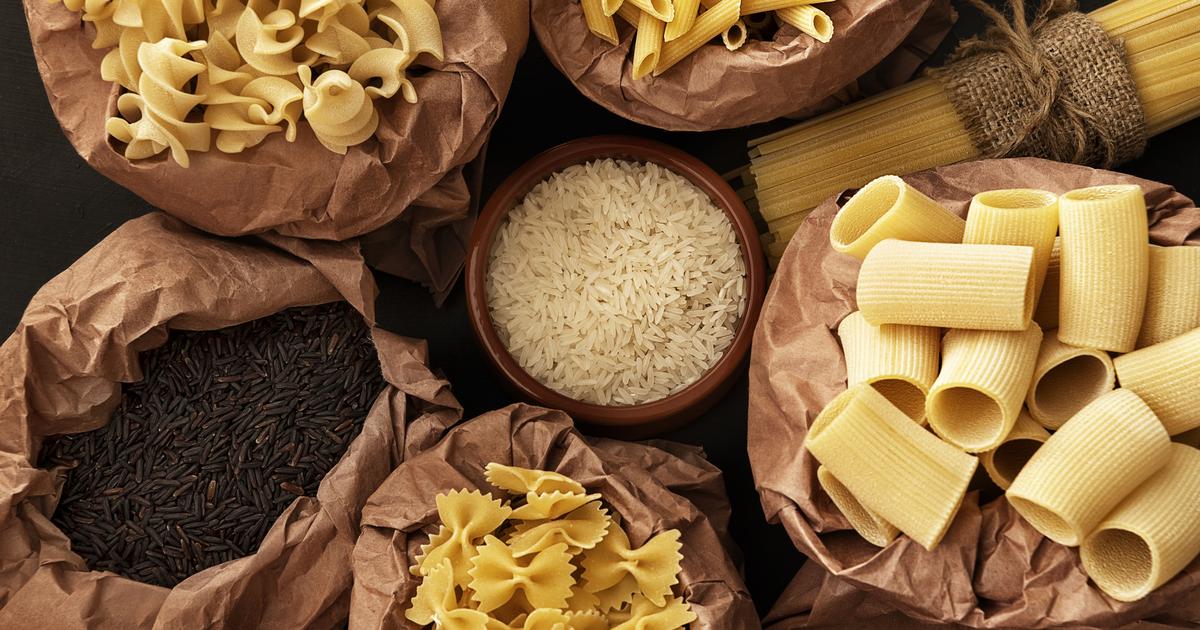Bottlenecks in the supermarket: Aldi rations pasta and rice in some branches
Created: 05/24/2022, 15:21
By: Fee Halberstadt
In addition to oil and flour, rice and noodles are now also bought in large quantities.
(Archive image) © Robert Michael/dpa
Some consumers buy groceries in bulk.
That's why Aldi is now rationing the next products.
Kassel – Since the Ukraine conflict escalated and Russia invaded Ukraine, food prices in Germany have been rising.
This increase affects a wide variety of foods in shops such as Lidl, Aldi, Rewe, Edeka and Co. Bread, pasta and coffee as well as milk and meat products are affected.
But these have not only become more expensive, they are often sold out.
Perishable products such as sunflower oil, flour, pasta and preserves are becoming scarce.
Fearing that groceries will soon run out, some consumers tend to buy these products in bulk.
There was a similar development at the beginning of the corona pandemic.
Due to the high demand, Aldi is now rationing the next products.
Aldi is now rationing pasta and rice: delivery bottlenecks are also spreading to other products
Aldi is not the first grocery store to resort to rationing to prevent panic buying.
The discounter Lidl rationed the first products in its range at the beginning of April.
The group told the news portal Echo24: "Since certain product groups, such as cooking oil and canned goods, are currently in very high demand, we only sell these products in all branches in normal household quantities."
The competitor Aldi is now rationing even more food, as reported by Business Insider.
In a branch of the subsidiary Aldi Nord in Brandenburg, the same signs are now hanging next to pasta and rice that were otherwise hanging next to flour, sunflower oil and canned food.
The sale of the products is limited to "normal household quantities", but not throughout Germany for the time being, but only in a few branches.
Delivery bottlenecks due to hamster purchases: Aldi is rationing other products
Other supermarkets are also rationing food due to high demand.
"Regardless of the current situation, we only sell our goods in normal household quantities," a Lidl spokeswoman told Business Insider about the sale of pasta and rice.
also read
Sunflower oil, petrol, vegetables: now the price of the Germans' favorite product is also rising
Rewe customer finds sunflower oil – and is “a bit surprised” at the price
But according to an expert, there is still no reason to worry because the basic goods are there.
“One problem is the packaging material.
On the other hand, the filling capacities are fully booked," says Florian Block, press spokesman for the Federal Association of Wholesale, Foreign Trade and Services (BGA) when asked by the editorial network Germany (RND).
Other experts support this thesis.
The extremely high demand for certain products due to hoarding leads to logistical problems.
That's why the shelves stay empty longer than usual.
(Fee Halberstadt)






